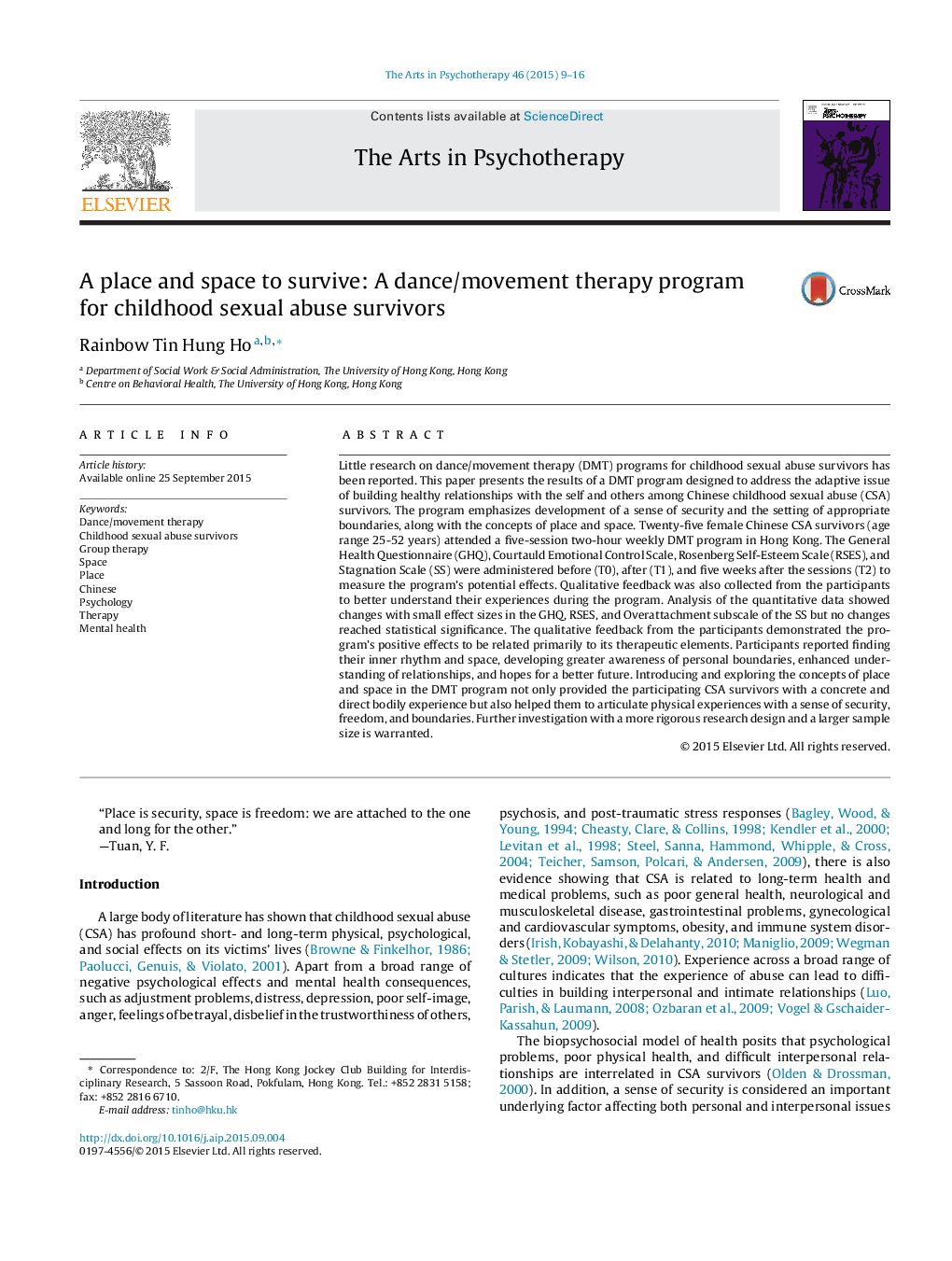| کد مقاله | کد نشریه | سال انتشار | مقاله انگلیسی | نسخه تمام متن |
|---|---|---|---|---|
| 343540 | 617182 | 2015 | 8 صفحه PDF | دانلود رایگان |
• Space and place can be used as concepts related to boundary and freedom in dance/movement therapy, physically and psychologically.
• Childhood sexual abuse survivors could develop sense of security and appropriate boundary with the concept of space and kinesphere.
• Through establishing a sense of anchor with the ground, participants were willing to explore the freedom that could be managed and controlled by them.
• Dance/movement therapy could help CSA survivors reduce distress and lessen psychological attachment.
Little research on dance/movement therapy (DMT) programs for childhood sexual abuse survivors has been reported. This paper presents the results of a DMT program designed to address the adaptive issue of building healthy relationships with the self and others among Chinese childhood sexual abuse (CSA) survivors. The program emphasizes development of a sense of security and the setting of appropriate boundaries, along with the concepts of place and space. Twenty-five female Chinese CSA survivors (age range 25-52 years) attended a five-session two-hour weekly DMT program in Hong Kong. The General Health Questionnaire (GHQ), Courtauld Emotional Control Scale, Rosenberg Self-Esteem Scale (RSES), and Stagnation Scale (SS) were administered before (T0), after (T1), and five weeks after the sessions (T2) to measure the program's potential effects. Qualitative feedback was also collected from the participants to better understand their experiences during the program. Analysis of the quantitative data showed changes with small effect sizes in the GHQ, RSES, and Overattachment subscale of the SS but no changes reached statistical significance. The qualitative feedback from the participants demonstrated the program's positive effects to be related primarily to its therapeutic elements. Participants reported finding their inner rhythm and space, developing greater awareness of personal boundaries, enhanced understanding of relationships, and hopes for a better future. Introducing and exploring the concepts of place and space in the DMT program not only provided the participating CSA survivors with a concrete and direct bodily experience but also helped them to articulate physical experiences with a sense of security, freedom, and boundaries. Further investigation with a more rigorous research design and a larger sample size is warranted.
Journal: The Arts in Psychotherapy - Volume 46, November 2015, Pages 9–16
